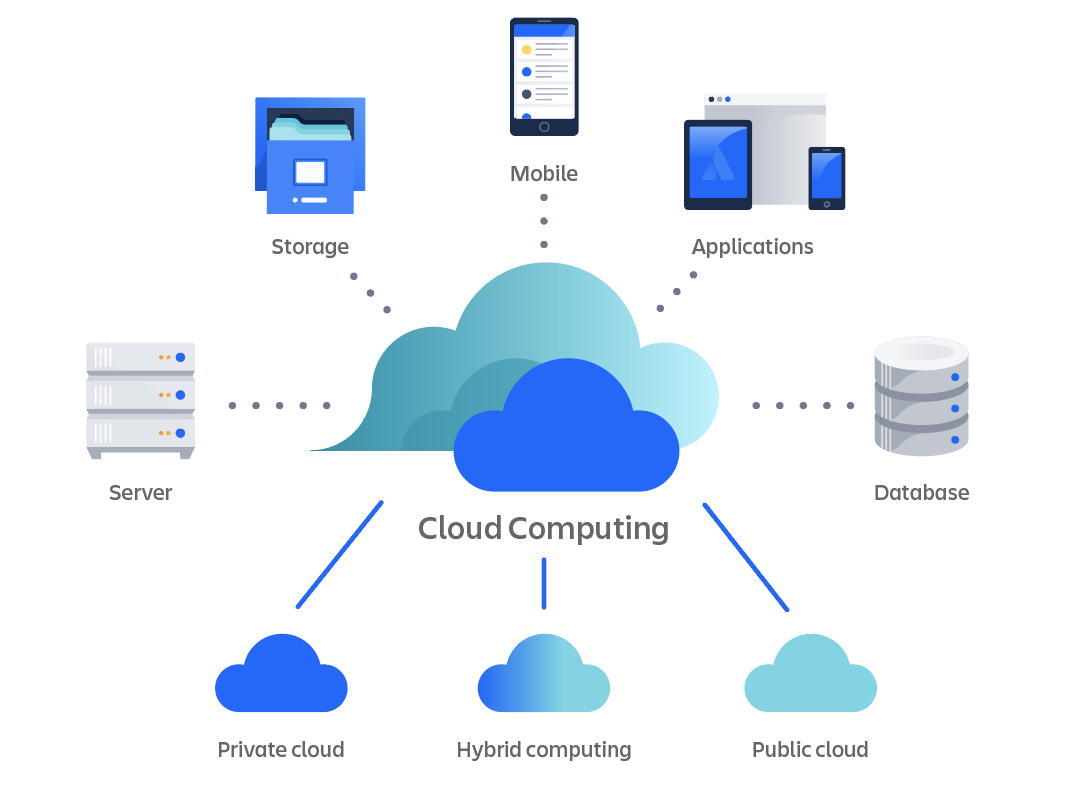Streamline IT Administration With Cloud Solutions
In today's quickly advancing digital landscape, the function of IT management is ending up being progressively complex. Organizations are continuously seeking ways to streamline their IT operations to stay competitive and dexterous. Cloud services have arised as a viable solution for organizations aiming to improve effectiveness, reduce expenses, and improve overall IT efficiency. By accepting cloud technology, firms can accomplish greater flexibility, scalability, and safety and security in handling their IT facilities. How exactly do these cloud services reinvent conventional IT management methods? Let's discover the transformative impact of leveraging cloud solutions on IT operations and the key factors to consider for successful execution.
Advantages of Cloud Provider

Additionally, cloud services enable organizations to boost their functional performance by simplifying procedures and minimizing the time and resources needed for handling IT framework. With cloud solutions, services can automate routine tasks, such as software program updates and information backups, freeing up IT teams to concentrate on even more tactical initiatives that drive business worth.

Enhanced Scalability and Adaptability
Cloud services give companies with unmatched scalability and versatility in handling their IT resources efficiently. Scalability is an essential attribute of cloud solutions that enables firms to quickly change their IT resources based on need. With cloud services, businesses can swiftly scale up or down their computer resources, storage space ability, and network data transfer to satisfy transforming needs without the requirement for considerable ahead of time investments in hardware. This versatility makes it possible for organizations to adapt to varying workloads, seasonal demands, or unforeseen development without experiencing downtime or efficiency concerns.
In addition, cloud services offer the versatility for workers to gain access to firm data and applications from anywhere, at any time, and from any type of gadget with a web link. This capacity boosts performance and cooperation amongst remote teams or employees operating in different locations. Additionally, cloud solutions give the adaptability to pick from a range of service models, such as Framework as a Solution (IaaS), Platform as a Service (PaaS), or Software as a Solution (SaaS), based upon the specific demands of business. The boosted scalability and versatility provided by cloud solutions encourage services to maximize their IT procedures and stay agile in today's vibrant market atmosphere.

Cost-Effectiveness and Cost Savings
With the ability to successfully assign sources based on need, businesses making use of cloud services can harness substantial cost-effectiveness and realize significant savings in their IT procedures. Cloud solutions provide a pay-as-you-go version, allowing firms to only pay for the resources they make use of, eliminating the requirement for huge upfront investments in equipment and software application. This scalability ensures that companies can conveniently see this site adjust to varying needs without spending beyond your means on unnecessary sources. Additionally, cloud services lessen upkeep prices by shifting the obligation of equipment maintenance link and software updates to the service supplier. This reduces the need for specialized IT team to take care of infrastructure, further lowering functional expenses. Furthermore, the cloud offers economic situations of range, with providers spreading expenses throughout multiple clients, resulting in lower individual costs for services like storage and computing power. Overall, the cost-effectiveness and financial savings attained via cloud services enable businesses to reallocate sources in the direction of advancement and development efforts.
Improved Safety and Conformity
Enhancing the overall safety position and ensuring regulative compliance are vital considerations for organizations leveraging cloud services in their IT administration methods. Cloud company offer innovative safety and security actions, such as data security, multi-factor authentication, and automated backups, which can bolster a company's security structure. These carriers likewise stick to rigorous regulative criteria, such as GDPR, HIPAA, and PCI DSS, helping services meet compliance demands better.
Implementing cloud solutions can enhance safety by giving centralized control over gain access to administration, monitoring, and data security. This central approach simplifies safety monitoring and ensures consistent application of protection policies across the organization. Additionally, cloud solutions usually offer real-time safety and security updates and patches, lowering the risk of vulnerabilities and prospective breaches.
Ideal Practices for Cloud Execution
Applying cloud solutions efficiently calls for an organized strategy that incorporates thorough preparation and attentive implementation. To make certain a smooth change to the cloud, companies must start by carrying out a detailed evaluation of their current IT infrastructure and recognizing which work appropriate for migration. It is important to establish clear goals and define key efficiency indications (KPIs) to determine the success of the cloud application.
One of the best techniques for cloud application is to very carefully choose a cloud service copyright that aligns with the company's demands in regards to protection, cost-effectiveness, compliance, and scalability. Additionally, producing a detailed movement strategy that describes the actions involved, timelines, and responsibilities is essential for an effective implementation.
Consistently keeping resource an eye on and maximizing cloud sources to ensure efficient efficiency and cost administration is an additional critical element of cloud execution best practices. Constant analysis of the cloud setting and remaining educated about updates and new functions supplied by the cloud company can better improve the company's cloud approach. By following these best methods, organizations can enhance their IT monitoring and take full advantage of the advantages of cloud services.
Verdict
To conclude, leveraging cloud solutions for IT management offers various benefits, including enhanced scalability, cost-effectiveness, improved safety and security, and conformity. By adhering to ideal techniques for cloud execution, companies can simplify their IT procedures, automate regular tasks, and optimize source allowance. This structured method enables IT teams to concentrate on strategic initiatives and innovation, inevitably supplying worth to the company. Generally, cloud services enhance functional performance and dexterity in managing IT infrastructure.
Additionally, cloud solutions offer the flexibility to choose from a selection of service versions, such as Framework as a Service (IaaS), System as a Service (PaaS), or Software as a Solution (SaaS), based on the particular needs of the organization. Furthermore, cloud services lessen maintenance prices by shifting the duty of hardware maintenance and software updates to the solution company.Enhancing the general safety and security position and making sure governing compliance are extremely important factors to consider for businesses leveraging cloud solutions in their IT management methods.On a regular basis keeping an eye on and maximizing cloud resources to make certain efficient efficiency and price management is an additional critical element of cloud execution best methods. Continual assessment of the cloud atmosphere and remaining informed about updates and brand-new attributes offered by the cloud supplier can better enhance the organization's cloud approach.